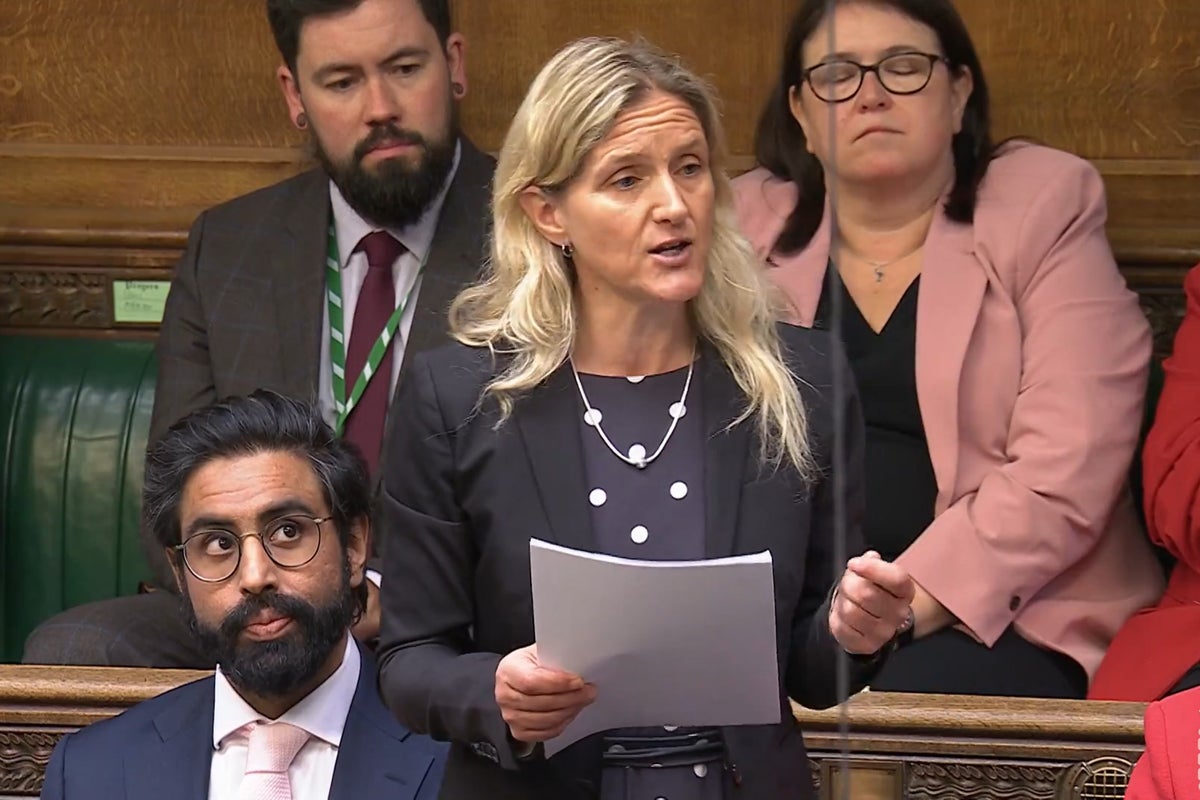Kim Leadbeater has been warned by a Labour colleague that an article she promoted on assisted dying has only served to sway undecided MPs against her end of life legislation.
The shot across the bows from former political journalist-turned Labour Rochdale Paul Waugh has come just days ahead of the final stages in the Commons of Ms Leadbeater’s Terminally Ill Adults (End of Life) Bill.
Ms Leadbeater had tweeted and quoted an article by Sharnee Rawson in The Guardian highlighting how her grandparents in Australia ended their lives together not long after their 70th wedding anniversary.
Ms Leadbeater pulled out the touching quote: “When they chose to die together, my grandparents wrote the final chapter of a love story spanning 70 years.”
But in a warning Mr Waugh responded: “I have the utmost sympathy for this family. But this article is precisely why more MPs are turning against the Assisted Dying Bill. Neither of the couple involved appears to have had a terminal illness, yet their deaths went ahead despite ‘strict’ eligibility rules.”
He went on: “The piece even spells out that the implementation of the rules was far from strict: ‘It was unclear whether the spinal condition would qualify as a terminal illness.’
He added: “I voted against the UK bill at 2nd reading and will certainly do so again at 3rd reading.”
Ms Leadbeater retorted to the criticism online by highlighting the strict legal criteria in Australia for end of life assistance.
“The criteria in New South Wales are quite clear,” she said.
Since Ms Leadbeater won a majority of 55 for her bill at second reading last November a series of heated arguments at committee stage have seen support dwindling. At least 12 MPs who backed her previously or abstained now plan to vote against it.
Concerns have been raised over Ms Leadbeater’s decision to move proposals away from a judge making the final decision in court towards leaving the job to an expert panel. Ms Leadbeater argues this strengthens the process, but critics have claimed it makes coercion more likely.
If it clears the Commons, there is a threat that the bill could clog up business in the Lords with strong opposition from peers, including cross bench former Paralympian Baroness Tanni Grey-Thompson.
The row comes amid concerns that attempts to decriminalise abortion beyond the legal limit of 28 weeks will also become a distraction for the government, with divisions among the parliamentary party.
The Independent has learned of plans to derail the government’s Crime and Policing Bill in the Lords if amendments by Labour MPs Stella Creasy and Tonia Antoniazzi decriminalising late abortions are passed.
Already, there are expected to be splits within Labour in the Commons and what is a “conscience vote” even though it is attached to government legislation with York Central Labour MP Rachael Maskell at the forefront of arguing against the move.
But a peer has told The Independent that a cross party group in the Lords are “ready to play ping pong” with a crucial government bill over the issue.
“There will be attempts to move criminal responsibility to providers instead of women and other moves which will be difficult for the government,” a source said.
“There will be new attempts to control home abortion pill provision as well. It will be opening a can of worms.
“Because this [abortion reform] was not in the manifesto we can hold up the bill without the government being able to use the Parliament to bypass the Lords.”
It is understood that opponents have been boosted by some polling last week by Whitestone Insight.
Asked if “having an illegal abortion should continue to be a criminal offence to protect both the unborn and vulnerable women who could be coerced into losing a baby they may have wanted, for example by an abusive partner”, more than six in 10 (62 per cent) agreed, while less than one in five (17 per cent) disagreed.
A similar number (64 per cent) agreed with the statement that “abortion is a matter of life and death and it is therefore appropriate that the criminal law provides a clear boundary to protect everyone involved”. Just 14 per cent of those surveyed disagreed.
The poll of more than 2,000 members of the public, commissioned by the pro-life group SPUC.

